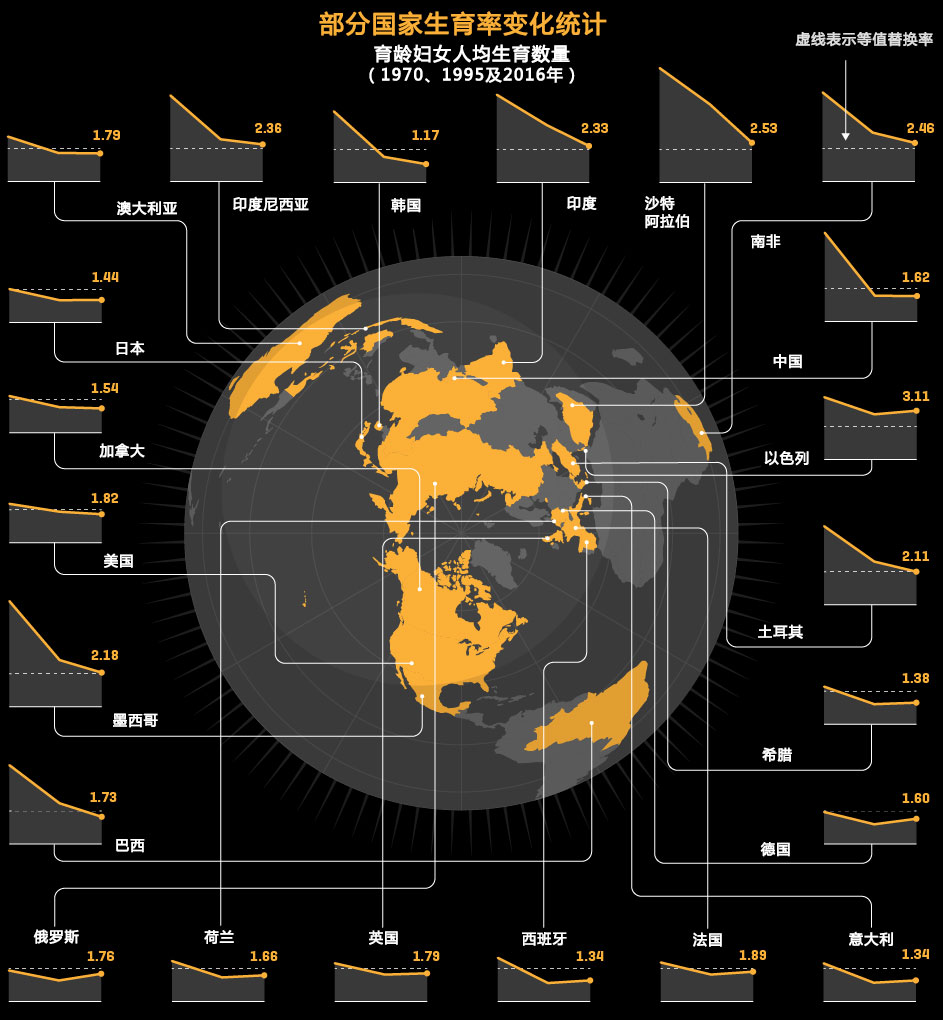
|
在大多数工业国家,平均每个妇女生育孩子的数量已降至2.1以下,这一数字是保障人口增长平稳的“更替率”。对于资源紧张的地球来说,这或许是件好事。但对企业和政府来说,这是一个迫在眉睫的挑战。生育率下降的一大影响是上班人口与退休人口比例的下降,这已经开始侵蚀美国、欧洲和日本的社会保障体系。生育率的下降也威胁着那些依靠不断扩大客户群来实现增长的面向消费者的行业。为了解决这个问题,我们需要加快发展生产力,以及制定更好的移民政策。这些解决办法很重要,不是儿戏。(财富中文网) |
In most industrial nations, the average number of childbirths per woman has fallen below 2.1—the “replacement rate” at which population growth ¬levels off. That may be good for a resource-strained planet. But for businesses and governments, it’s a looming challenge. One impact of declining fertility—a sinking ratio of working-age people to retiree—is already eroding social safety nets in the U.S., Europe, and Japan. Falling birth rates also threaten consumer-facing industries whose growth depends on ever-expanding pools of customers. To address the problem, we’ll need big gains in productivity and better immigration policy. Those solutions are anything but child’s play. |




